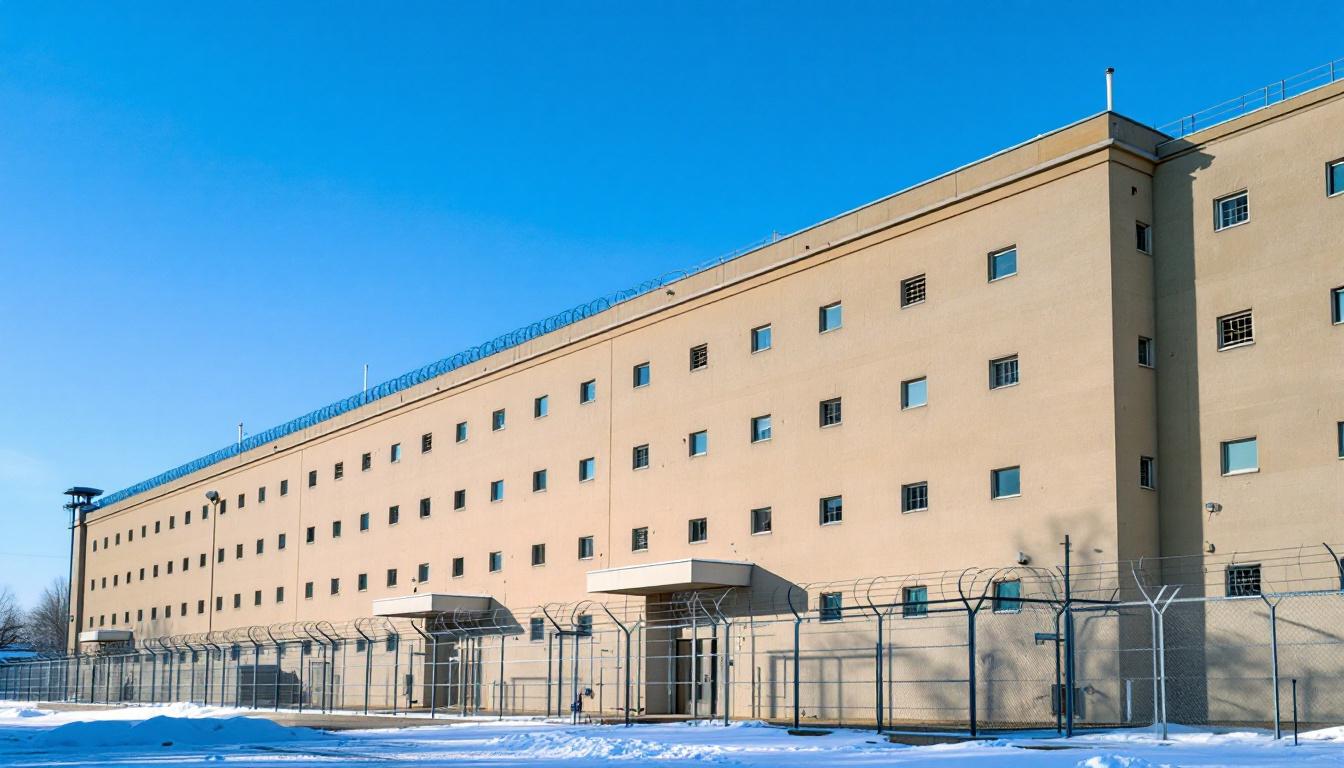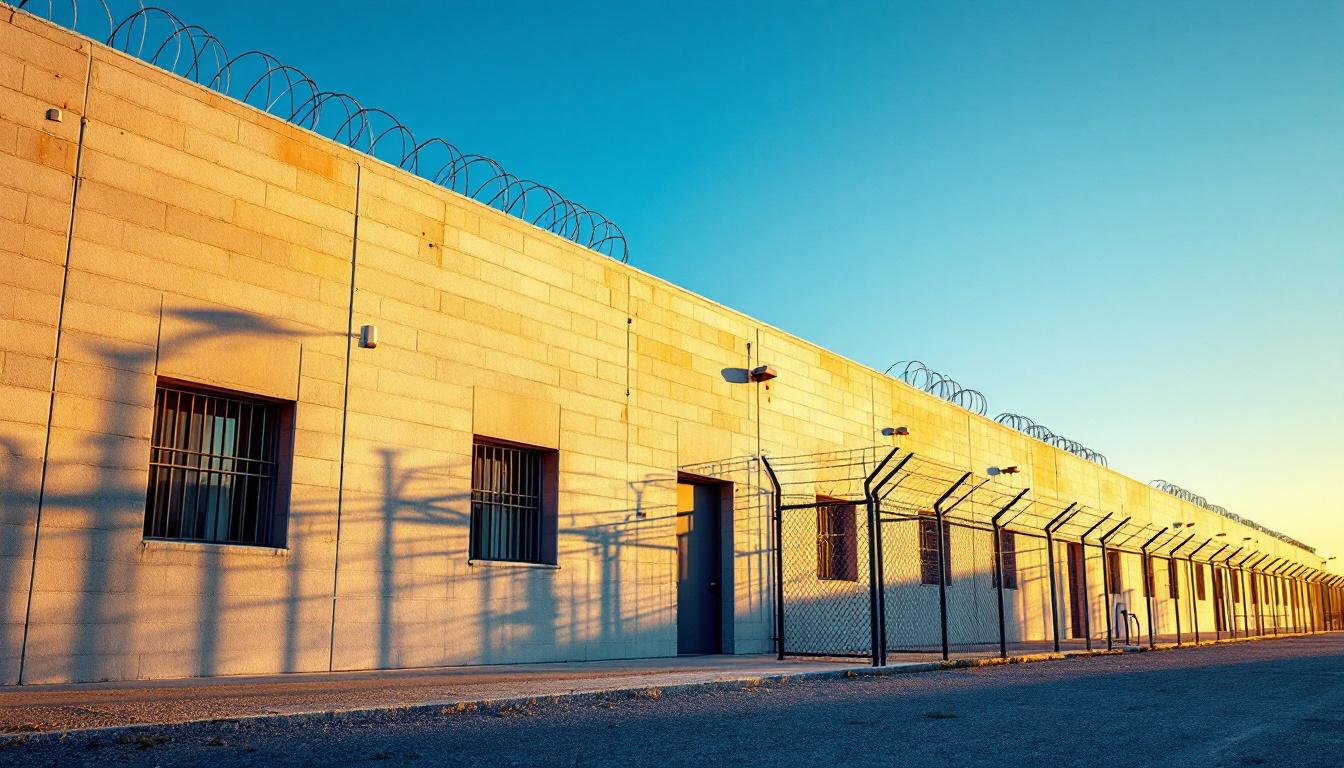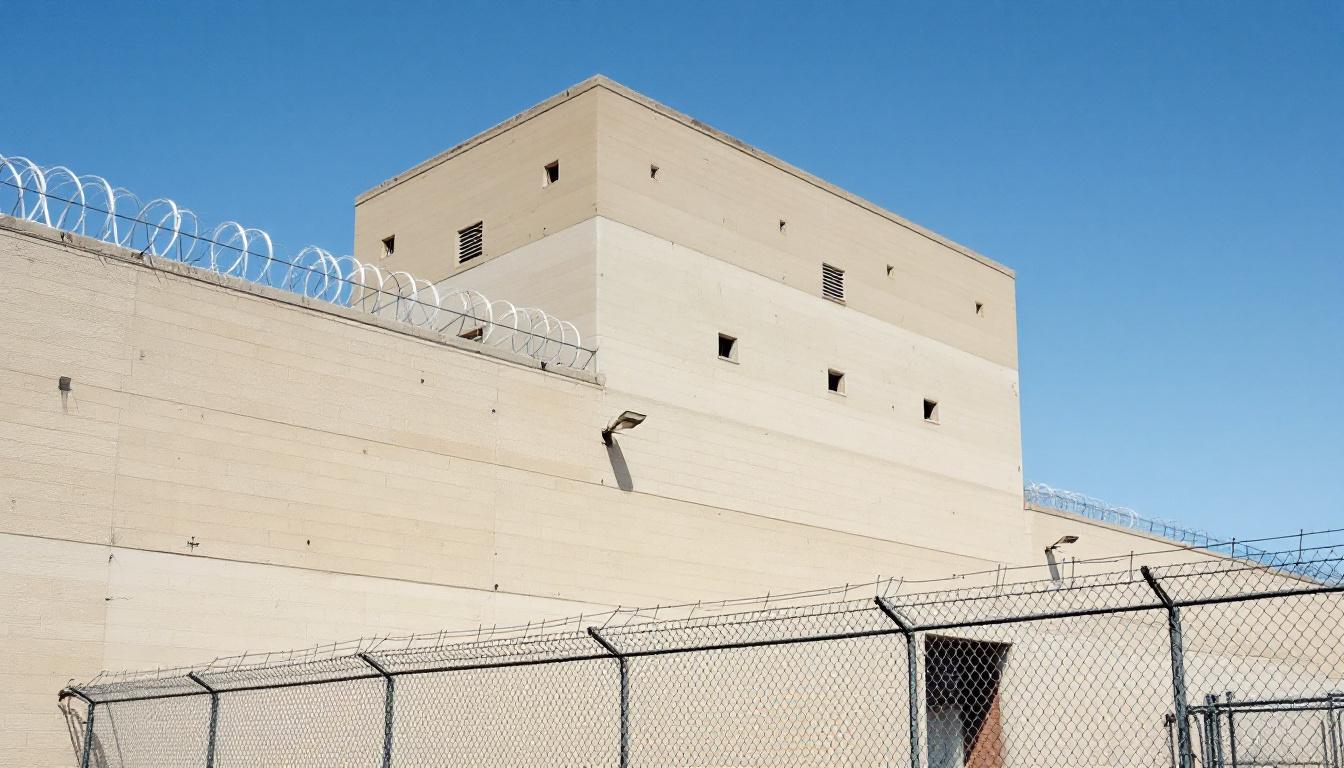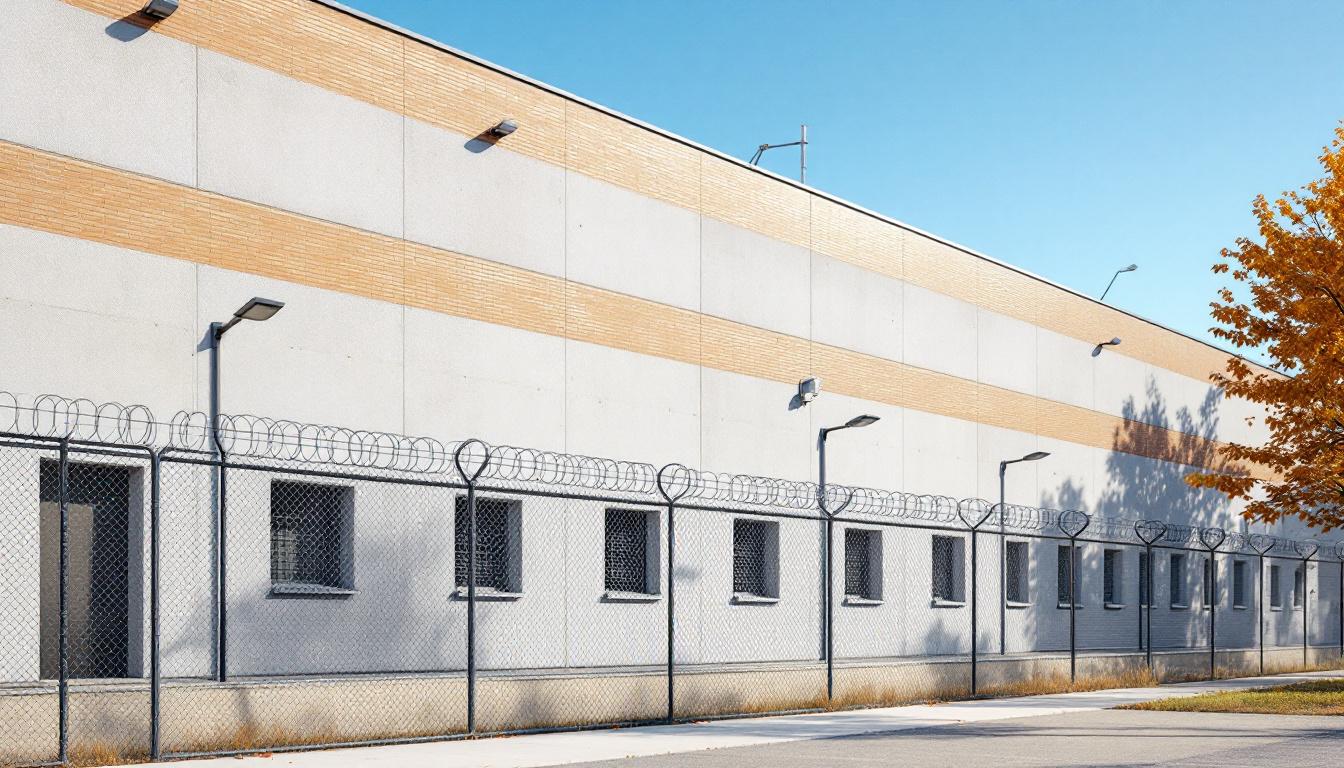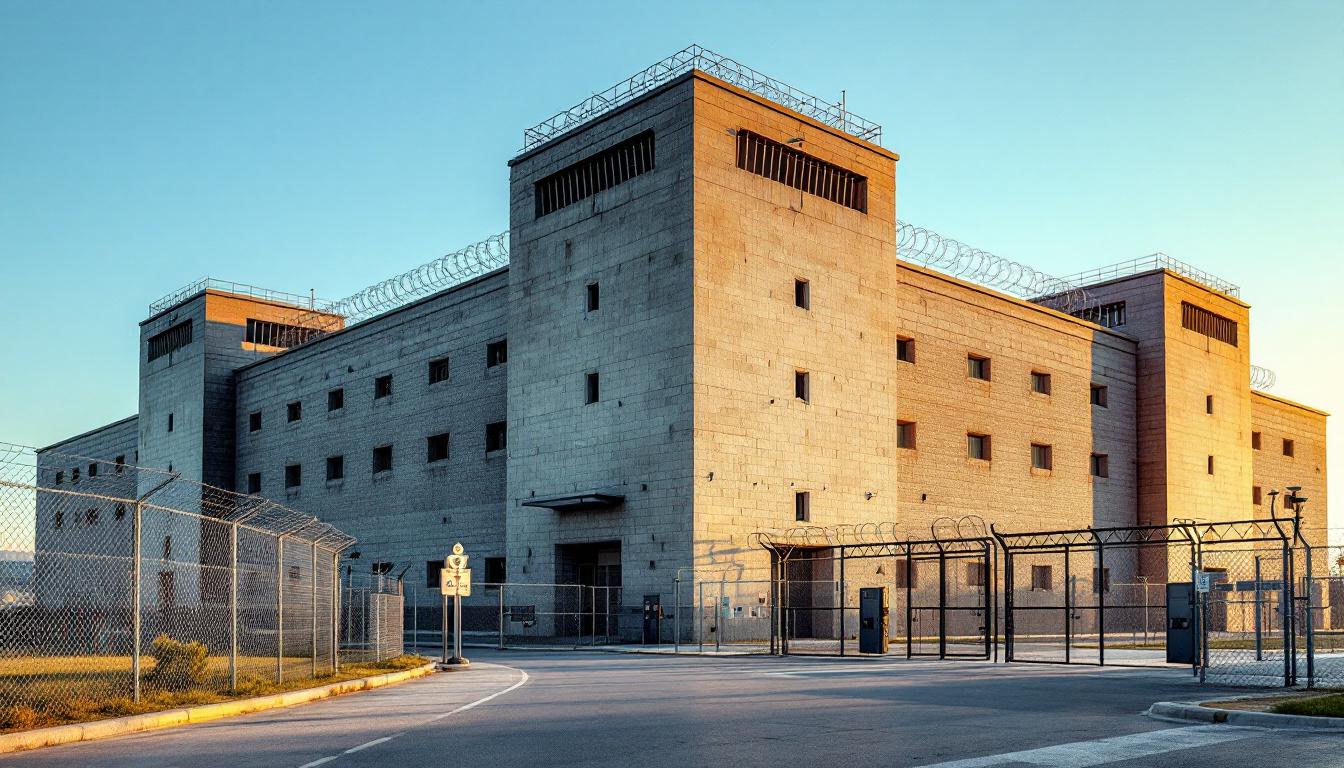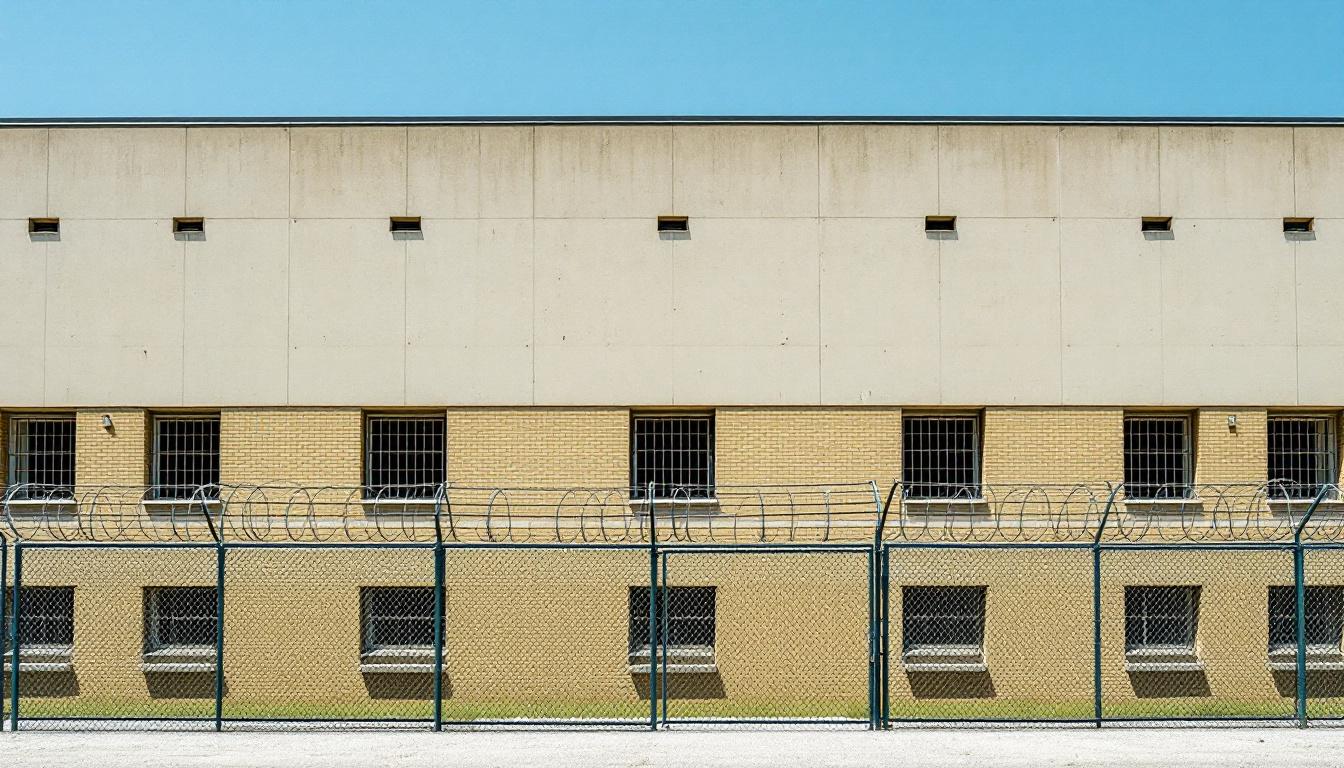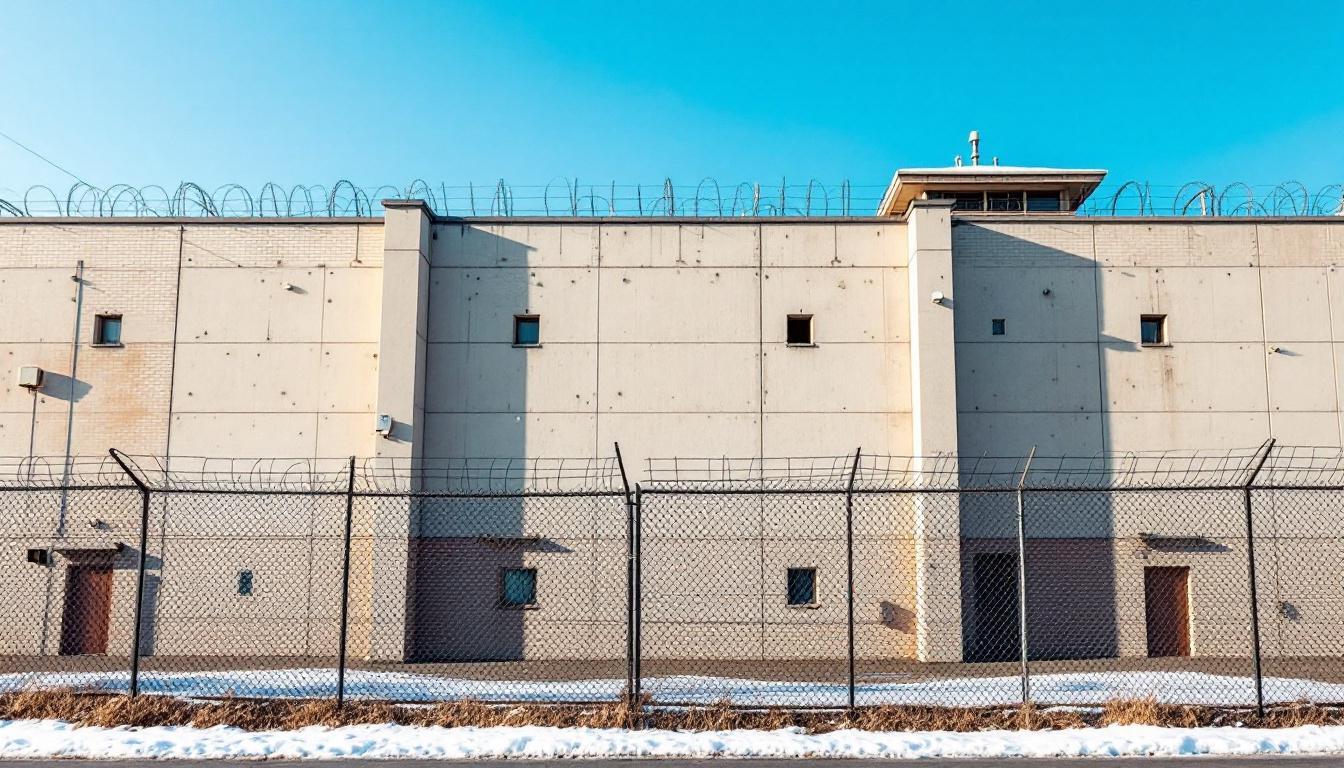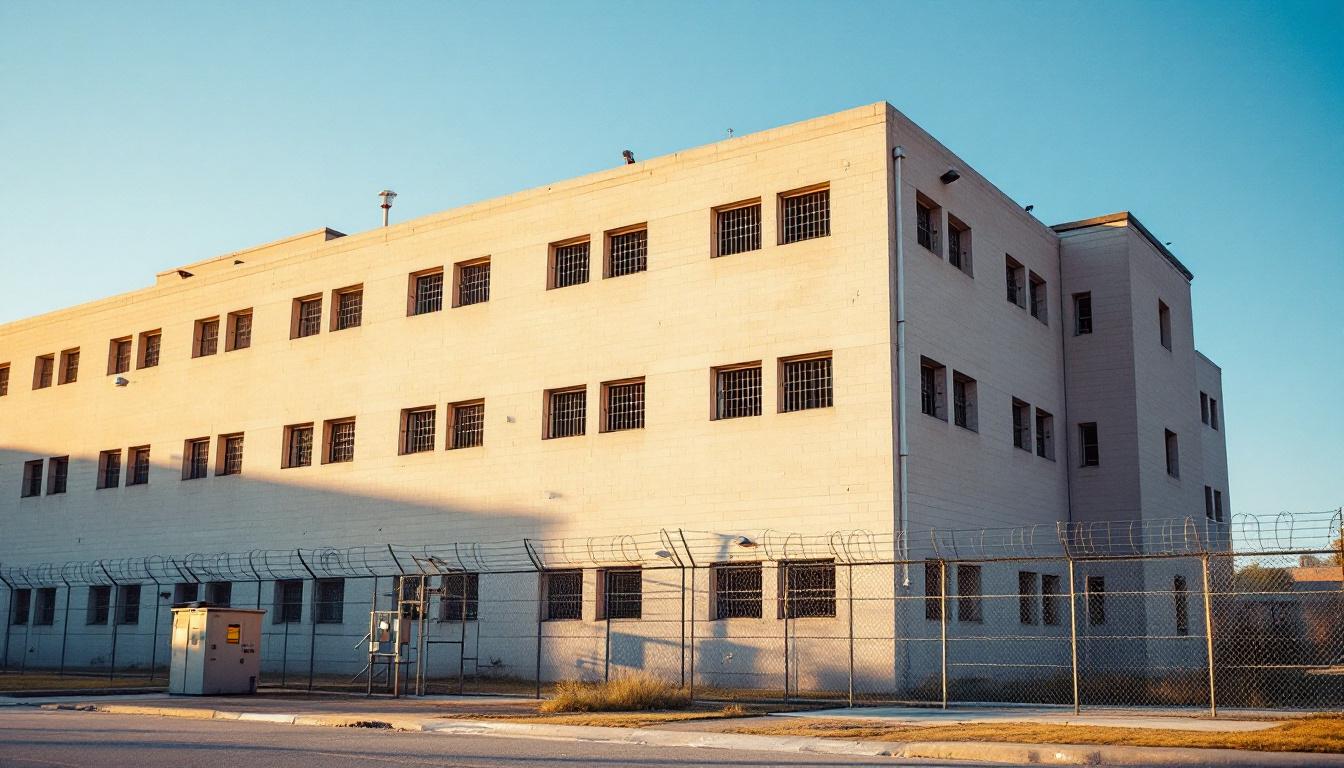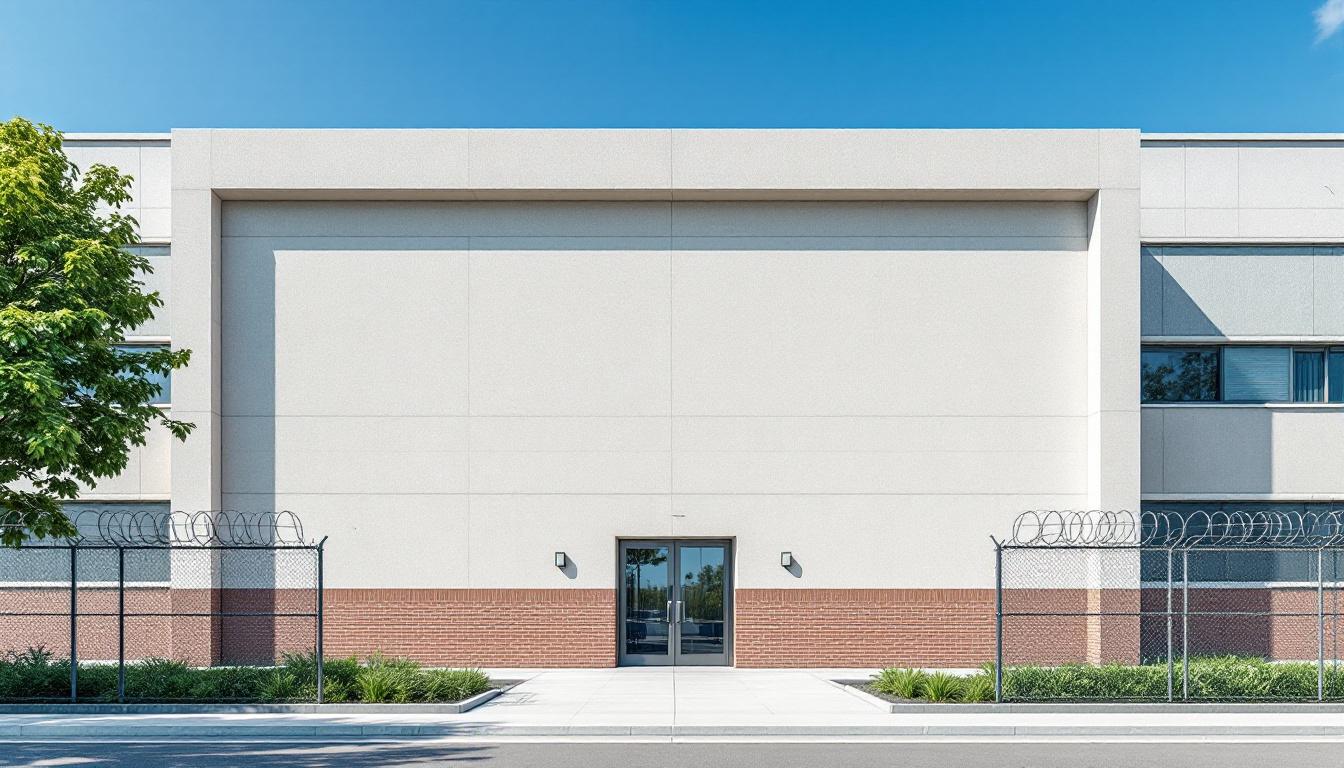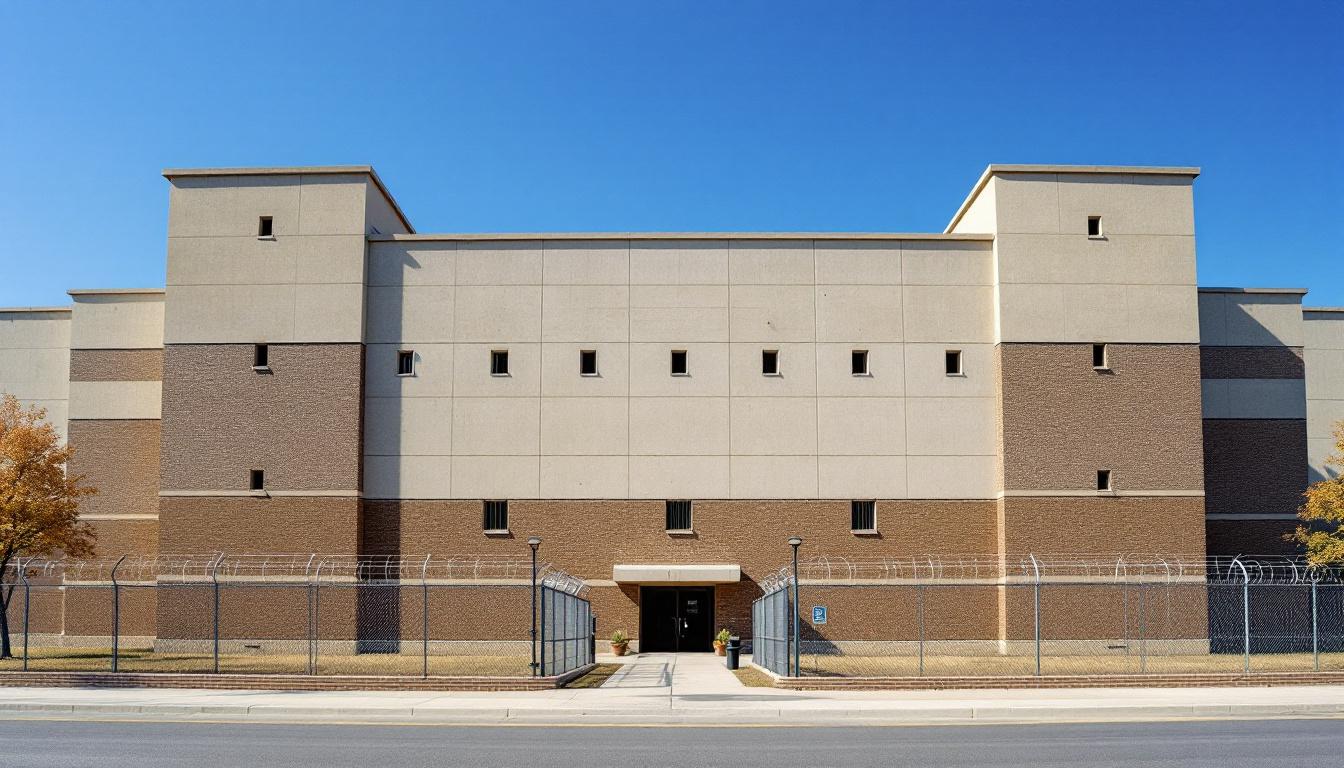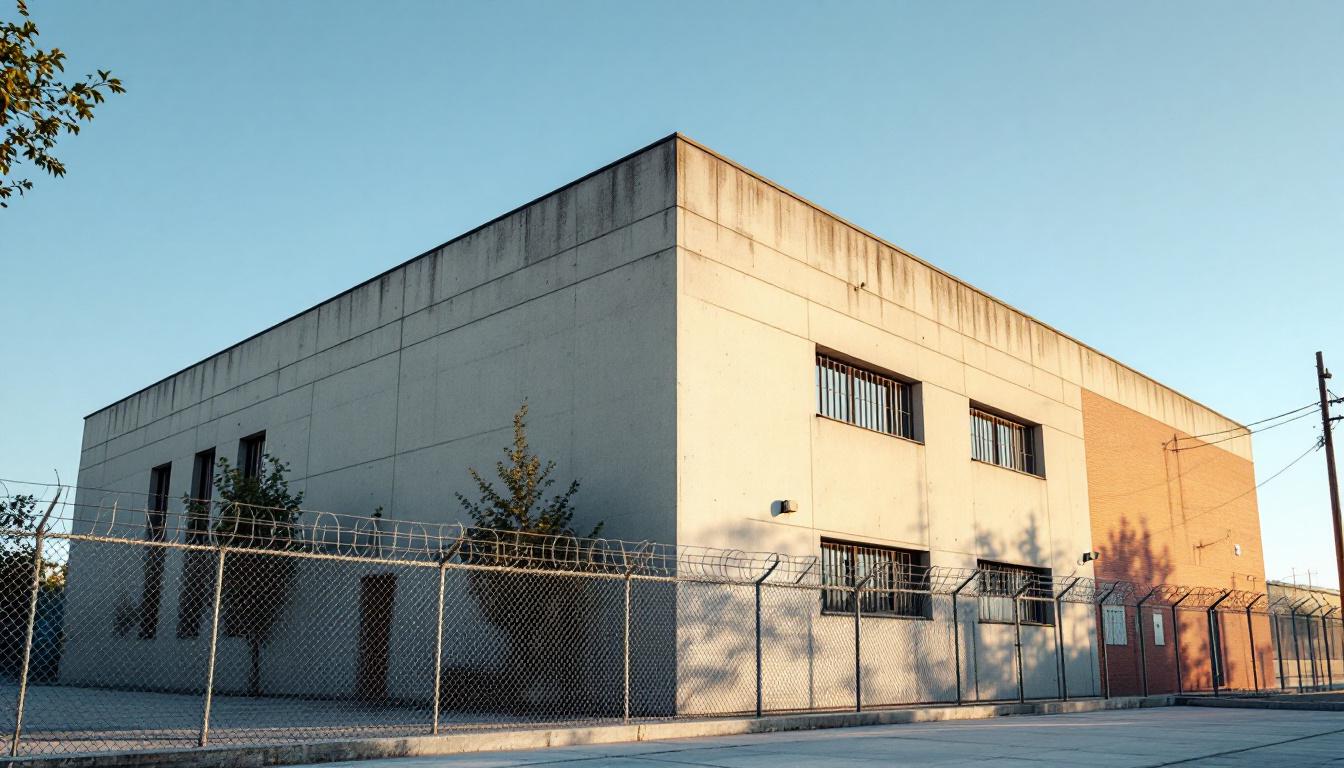
Quick Navigation
How to contact an inmate at Glynn County Detention Center
This comprehensive guide will walk you through how to connect with an inmate at Glynn County Detention Center. Follow the steps below to find an inmate and send letters and photos:
- Search for the inmate using our search tool below
- Create your account or log in to Penmate
- Write your message (up to 6,000 characters)
- Send instantly - inmates receive printed copies daily
Find an Inmate
Search for an inmate to start communicating today
Tip: You can search by first name, last name, or inmate ID number
To contact a person at Glynn County Detention Center start by searching for the person on the official facility website. Perform a search by following these steps:
- Step 1: Enter their first name and last name into the search form and click "Search"
- Step 2: Locate their inmate record
- Step 3: Write down their Inmate ID and any housing information provided
Important! Be sure to enter the person's full name. Nicknames should not be used.
How to Send Messages to Inmates

You can use your phone or computer to send emails, letters, and photos to an inmate. Messages are sent electronically to inmate tablets or kiosks at the facility. If you would like to send a message, start by searching for an inmate at Glynn County Detention Center.
Sending Photos and Postcards

A great way to send love and support to a loved one at Glynn County Detention Center is to send photos and postcards. It only takes a few minutes to send photos from your phone and it makes a huge difference. You can also mail postcards with words of support and inspiration, or design your own postcard for special moments like birthdays and holidays.
Important! Be sure not to send any explicit photos or they may not be approved by the facility. You can also use a photo printing app like Penmate to make sure your photos are printed at the correct size (4x6 or 3x5) and are mailed according to the rules and regulations of Glynn County Detention Center.
Frequently asked questions about Glynn County Detention Center
-
How long does it take to deliver a message?
If you're sending an email message your letter is usually delivered within 24-48 hours. For messages sent via mail you should expect delivery within 3-7 days. All messages will need be approved by Glynn County Detention Center.
-
How much does it cost to send a message to Glynn County Detention Center?
You can send a message free using your phone or mail a message via USPS for the price of a $0.60 stamp and envelope. You can also purchase credits or e-stamps from services starting at $1.99.
-
What services can I use to contact an inmate at Glynn County Detention Center?
Penmate
You can use Penmate to send letters and photos to an inmate from your phone. It's an easy way to stay in touch during your loved one's incarceration. Use the inmate locator to find an inmate's location and contact information, then you can send messages within a few minutes.
Securus messaging
Securus may be another option for communicating with an inmate at Glynn County Detention Center. You can create a friends and family account and purchase credits to send messages. All messages will be reviewed and must be approved by the facility.
JPay
Some county jails and state prisons may support sending messages with JPay. You must register an account with the system, find your loved one, and purchase stamps to send messages. For some locations you can also attach photos.
Smart Jail Mail
You may also check if Smart Jail Mail is available at Glynn County Detention Center. Smart Jail Mail is operated by Smart Communications and has contracted with some state and county jails. After purchasing credits, your messages and photos are sent to the facility, printed out, and then handed out to your loved one.
-
What is the mailing address of Glynn County Detention Center?
Mailing address:
Glynn County Detention Center
100 Sulphur Springs
Brunswick, GA 31520
Phone: (912) 554-7590 -
What are the visiting hours at Glynn County Detention Center?
Visiting hours at Glynn County Detention Center vary by housing unit and security level. Generally, visits are scheduled on weekends and holidays, with some facilities offering weekday visits. Contact the facility directly at (912) 554-7590 or check their website for the current visiting schedule. Visits typically last 30-60 minutes and must be scheduled in advance.
-
What items are prohibited when sending mail to Glynn County Detention Center?
Prohibited items typically include: cash, personal checks, stamps, stickers, glitter, glue, tape, staples, paperclips, polaroid photos, musical or blank greeting cards, hardcover books, magazines with staples, and any items containing metal or electronics. Only send letters on plain white paper with blue or black ink. Photos must be printed on regular photo paper (no Polaroids). Always check with Glynn County Detention Center for their specific mail policies.
-
How do I send money to an inmate at Glynn County Detention Center?
You can send money to an inmate at Glynn County Detention Center through several methods: 1) Online using JPay, Access Corrections, or the facility's approved vendor, 2) Money orders mailed directly to the facility with the inmate's name and ID number, 3) Kiosks located in the facility lobby, or 4) Over the phone using a credit or debit card. Fees vary by method, typically ranging from $2.95 to $11.95 per transaction.
-
Can I schedule a video visit with an inmate at Glynn County Detention Center?
Many facilities now offer video visitation as an alternative to in-person visits. At Glynn County Detention Center, video visits may be available through services like Penmate, Securus Video Connect, GTL, or ICSolutions. Video visits typically cost $10-20 for 20-30 minutes and must be scheduled in advance. You'll need a computer or smartphone with a camera and reliable internet connection. Contact the facility for their specific video visitation policies and approved vendors.
-
What identification do I need to visit an inmate at Glynn County Detention Center?
All visitors must present valid government-issued photo identification such as a driver's license, state ID, passport, or military ID. Minors must be accompanied by a parent or legal guardian who can provide the minor's birth certificate. Some facilities require visitors to be on the inmate's approved visitation list, which may require a background check. Contact Glynn County Detention Center for specific ID requirements and visitor approval procedures.
-
How can I find out an inmate's release date?
To find an inmate's release date at Glynn County Detention Center, you can: 1) Use the online inmate search tool if available, 2) Call the facility's records department, 3) Contact the inmate's case manager or counselor, or 4) Have the inmate provide this information during a call or visit. For privacy reasons, some facilities only release this information to immediate family members.
Facility Overview
Contact Information
Glynn County Detention Center100 Sulphur Springs
Brunswick, GA 31520
Phone: (912) 554-7590
Official Website
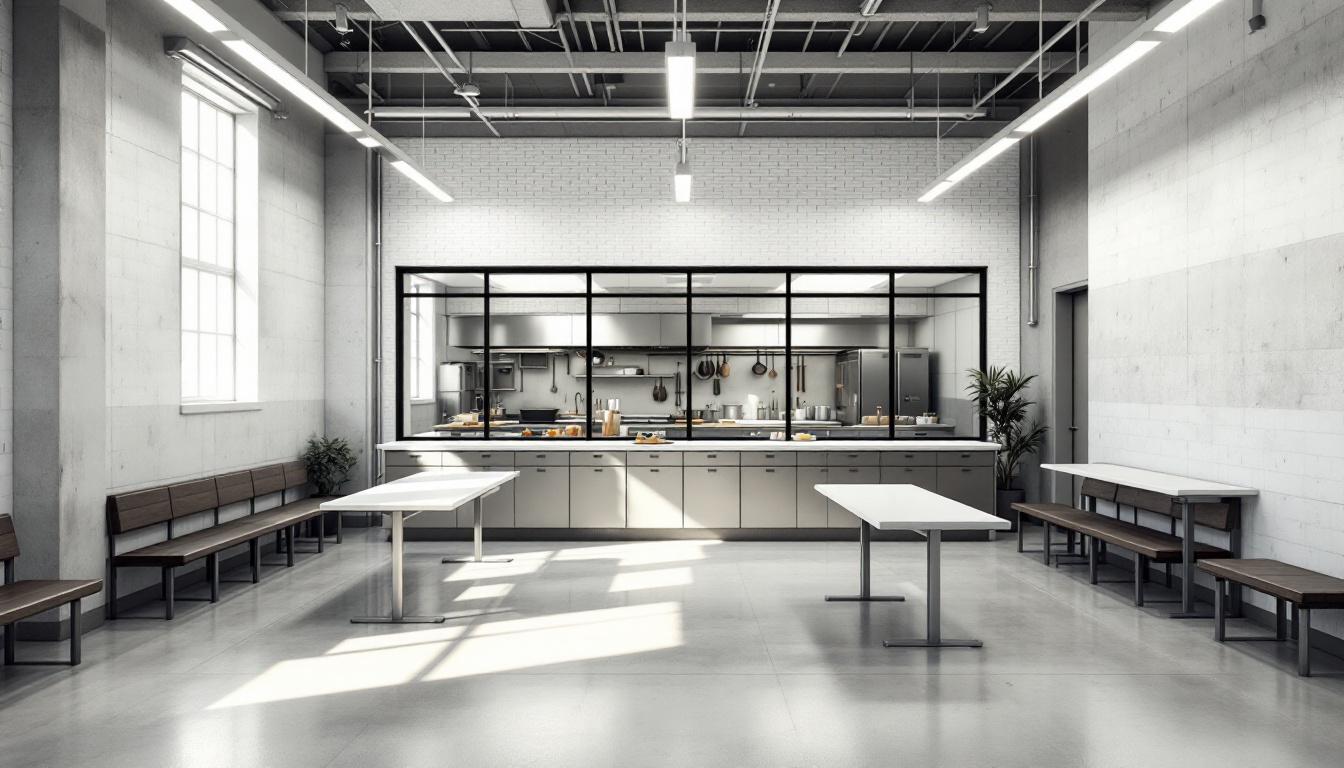
About Glynn County Detention Center
Detention centers serve as critical components within the justice system, providing secure housing for individuals awaiting trial or serving shorter sentences, and Glynn County Detention, GA operates within this framework to serve the Brunswick community and surrounding coastal region. Located in Brunswick, this GA correctional facility functions as part of Georgia's broader network of local detention facilities, typically handling pre-trial detainees alongside those serving misdemeanor sentences or awaiting transfer to other institutions.
The facility's approach generally emphasizes collaboration between various departments and community stakeholders to address the population services needs of those in custody. Brunswick's location along Georgia's coast brings unique considerations to detention operations, as staff may work with individuals from diverse backgrounds including local residents, transient populations, and those connected to the area's maritime industries. Programming at detention centers like this one often includes basic educational services, substance abuse counseling, and reintegration planning, though specific offerings may vary based on available resources and community partnerships.
Within the south region's correctional landscape, detention facilities typically focus on maintaining security while providing essential services that may help reduce recidivism upon release. The collaborative approach often extends to working with local courts, social services, and community organizations to ensure continuity of care and support for individuals transitioning back into the Brunswick area community. Such coordination generally aims to address underlying issues that may contribute to criminal behavior while maintaining public safety throughout Glynn County.
Programs & Services
Through comprehensive programming designed to address multiple aspects of personal development, support is provided to help the population build essential life skills and prepare for successful community reintegration. The facility typically emphasizes a holistic approach that recognizes the diverse needs of individuals in custody, offering various pathways for growth and positive change. These programs often focus on breaking cycles of recidivism by addressing underlying issues while fostering personal responsibility and community connections.
Educational programs may supply foundational academic instruction, including GED preparation and basic literacy courses that help participants develop critical thinking and communication skills. Furthermore, vocational training opportunities often include hands-on instruction in practical trades and job skills that can lead to employment upon release. The facility typically offers food service operations training, which provides valuable culinary and food safety experience, along with upholstery programs that teach detailed craftsmanship and marketable technical skills.
Support services play a crucial role in addressing the emotional and spiritual needs of the population through faith-based services that offer guidance and community connection. Parenting classes may supply essential skills for maintaining healthy family relationships and effective child-rearing practices, recognizing the importance of family stability in successful reintegration. Additionally, transitional planning services often include comprehensive discharge preparation that helps individuals develop realistic goals and connect with community resources, ensuring they have the tools and support networks necessary for a successful return to society.
Daily Life & Visitation
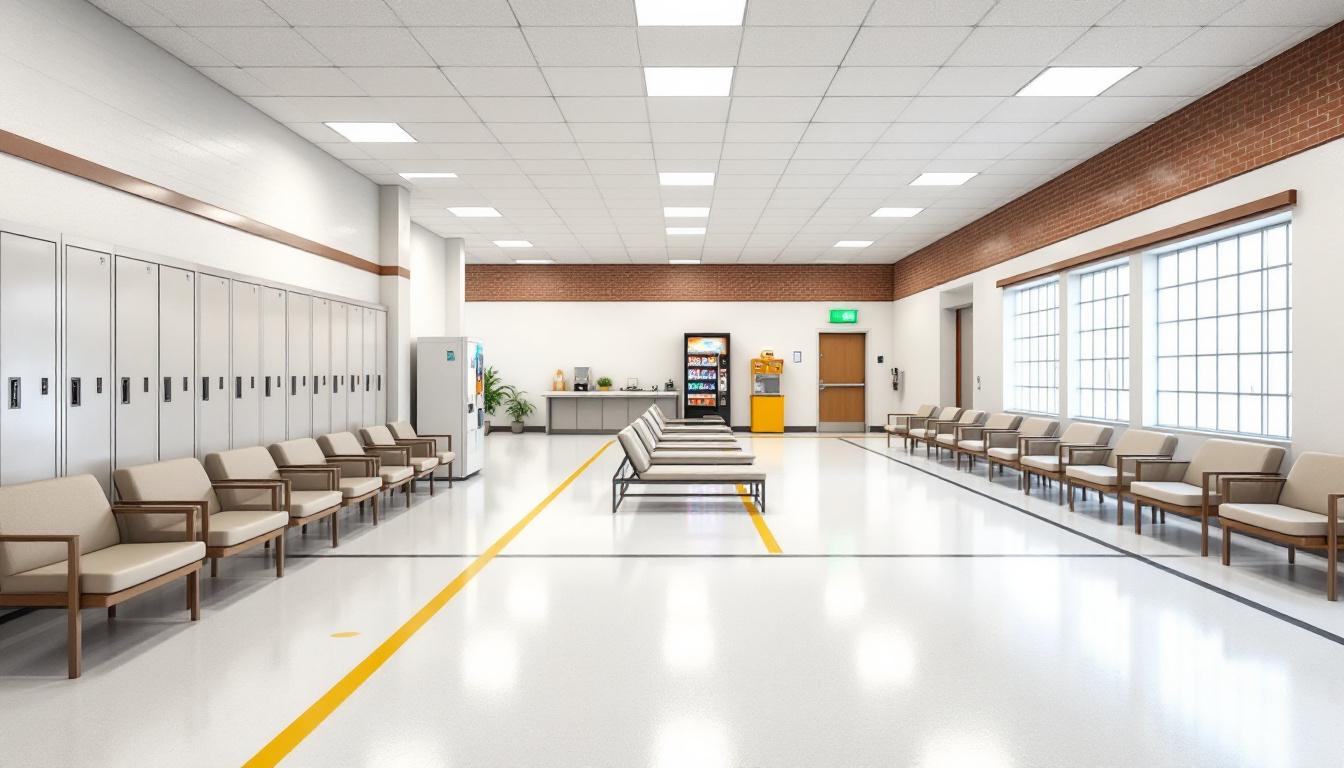
Structured routines and clear organizational protocols shape every aspect of life for the population at Glynn County Detention Center. Today begins with standardized wake-up procedures, followed by headcounts that consistently occur throughout each day. The facility typically operates on a regimented schedule that includes designated meal times, recreational periods, and programming activities. Security staff generally conduct regular rounds and inspections to maintain order and safety. Furthermore, the population usually follows established protocols for movement between different areas of the facility, ensuring that daily activities supply the necessary structure for institutional operations.
Housing arrangements at the facility typically consist of dormitory-style units or individual cells, depending on classification levels and available space. The population generally shares common areas that may include dayrooms with television access and tables for various activities. Personal property is usually limited to essential items and approved commissary purchases. Although living spaces are functional rather than comfortable, they often include basic amenities such as bedding and storage areas. Meals are typically served in designated dining areas at scheduled times, with the population following established procedures for food service and cleanup responsibilities.
Work assignments within the facility often include kitchen duties, maintenance tasks, and general cleaning responsibilities that help maintain daily operations. The population may participate in structured programming schedules that could encompass educational classes, counseling sessions, or vocational training opportunities. Recreation time typically provides access to outdoor areas when weather permits, along with indoor activities and exercise equipment. Furthermore, visitation policies generally allow for scheduled family contact, while communication options usually include monitored phone calls and correspondence. Although these programs and activities supply important structure to daily routines, they also help the population maintain connections with family members and prepare for eventual reintegration into the community.
Ready to Connect?
Start communicating with your loved one today
Search for an Inmate
